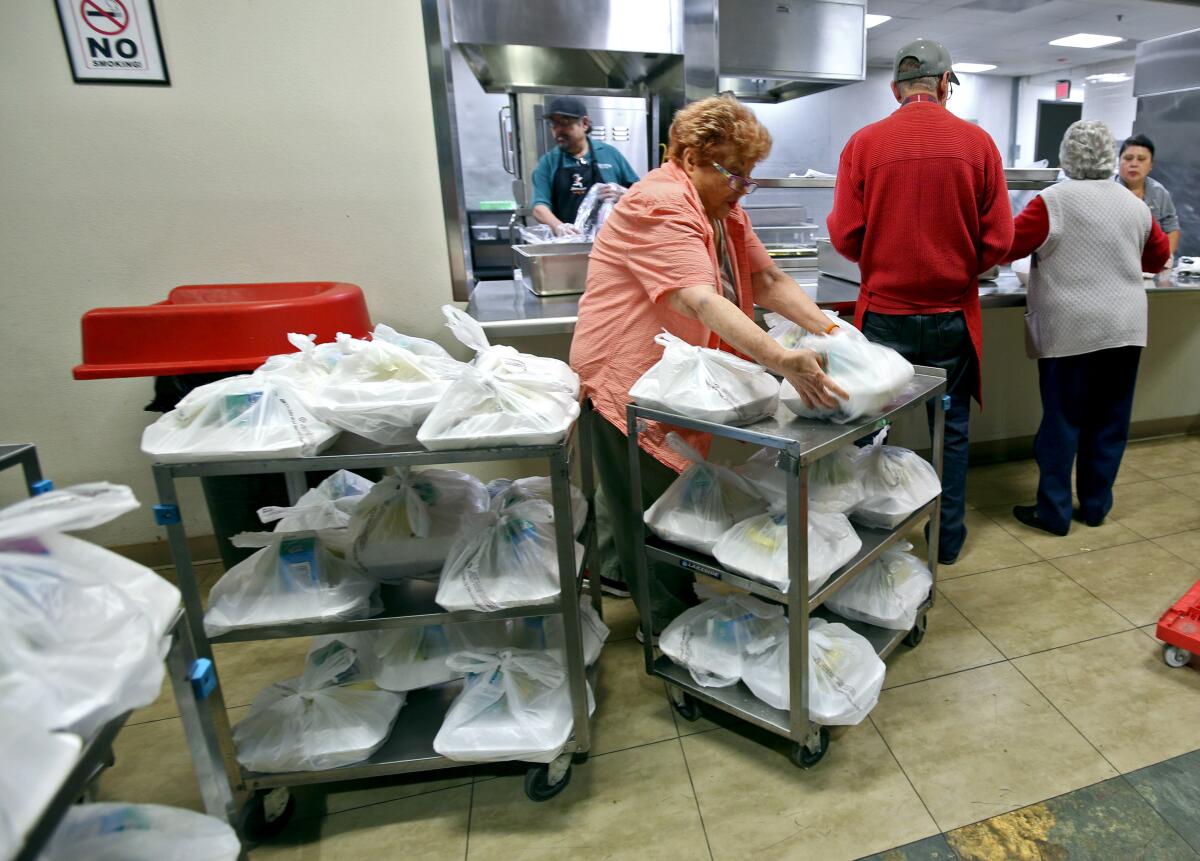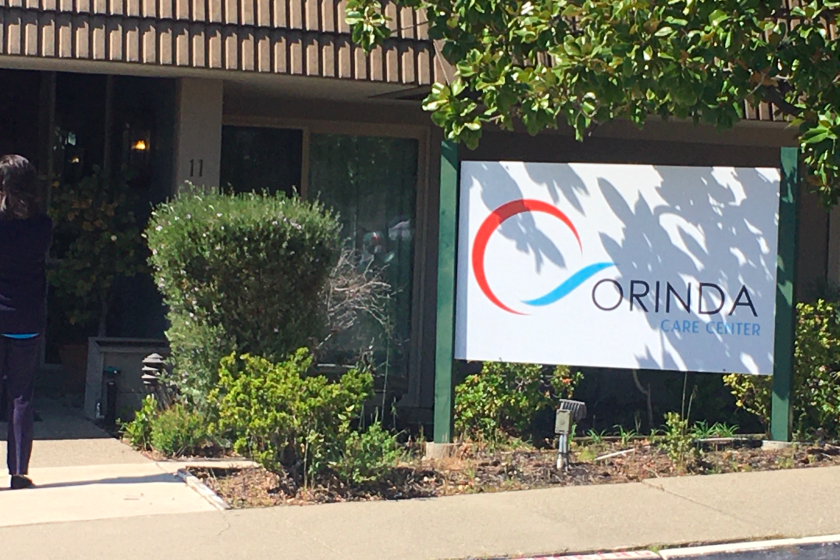Glendale declares state of emergency, orders restaurants, bars to implement ‘to-go’ model

- Share via
As of midnight tonight, Glendale bars and restaurants will be limited to serving takeout and to-go items in an effort intended to prevent the spread of the coronavirus that causes COVID-19. Glendale has two confirmed cases of the coronavirus.
The restrictions — which extend to banquet halls and hookah lounges — will be in effect until March 31. Gyms, fitness centers, movie theaters, bowling alleys and live performance venues will be required to shutter during the same timeframe. Grocery stores, pharmacies and food banks will remain open.
It marks City Council’s first action taken since declaring the city in a state of emergency at a special meeting at 1 p.m. today. It mirrors a similar directive the city of Los Angeles implemented last night.
Council members voted to hold off on allowing tenants to use income loss related to the coronavirus as a defense in eviction proceedings. Los Angeles officials have adopted an emergency just-cause provision.
Mayor Ara Najarian said the provision was “too broad” and asked city staff to refine it before potential reconsideration.
Glendale officials acknowledged that the required business closures and restrictions will likely result in negative economic impacts for those businesses and their employees.
“That’s what really hurts,” Najarian said. “We want to stop the spread of this virus, but we’re basically putting small business owners, who sometimes are on a thread, out of business.
“And not just the business owner, but the employees, the people that they rely on,” he added before voting to go forward with the measures.
Even before the mandated closures, local business owners voiced concerns about the effect that fears of the virus were having on their livelihoods.
On Friday, Judee Kendall, chief executive of the Glendale Chamber of Commerce, said she was worried about how small businesses in particular would fare.
“Even a day of shutdown is a problem for them,” Kendall said. “They live month-to-month — probably week-to-week. It could be disastrous for them.”
Hours before Glendale officials held their emergency meeting, USC Verdugo Hills Hospital announced it had diagnosed its first patient with the virus.
While the meeting was in progress, the L.A. County Department of Public Health released a report that identified another case.
Due to health-privacy concerns, limited information about the patient is being released, according to a statement by USC-VHH Chief Executive Keith Hobbs.
By calling a state of emergency, the city can coordinate and receive resources from state and federal governments and potentially other agencies, according to City Manager Yasmin Beers.
It also allows Beers to make some “necessary and appropriate actions” without City Council approval, according to City Atty. Mike Garcia.
On Friday, Glendale officials announced they would be closing city facilities to the public, including senior centers and a public pool. It also canceled all city-sponsored events and has since canceled all private events slated to take place at city facilities as well.
City meetings will be modified, and most likely transitioned into a teleconference format.

